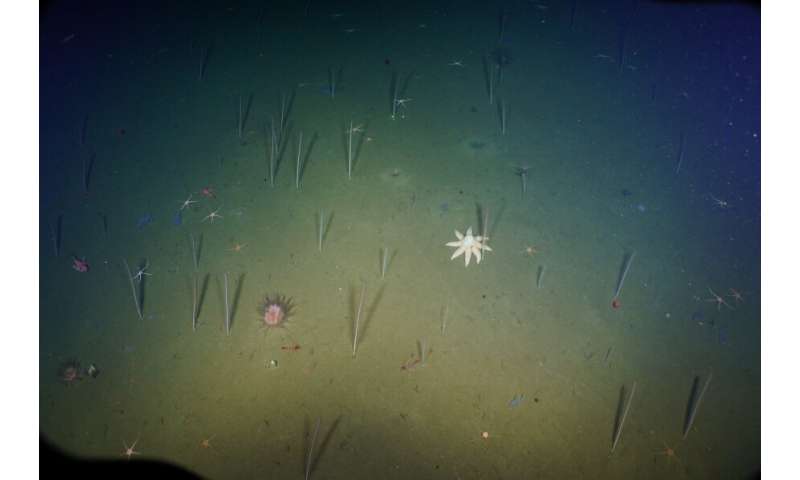The importance of climate change in deep-sea biodiversity

Which of temperature or food is more important for the richness of deep-sea animals? Dr. Moriaki YASUHARA from the School of Biological Sciences, the Research Division for Ecology & Biodiversity, and The Swire Institute of Marine Science, The University of Hong Kong (HKU), in collaborating with Hideyuki DOI from University of Hyogo and Masayuki USHIO from Kyoto University, used long-term fossil dataset and novel statistical method to detect causality and found climate control of deep-sea biodiversity.
Deep-sea cover >90 % of the ocean. So, understanding biodiversity drivers in deep-sea is critically important to project future changes in the function of Earth's ocean system. Recently, two main factors of the deep-sea biodiversity control have been actively debated, which are (1) food supply via marine snow (aka sinking particulate organic carbon originated from surface primary production) that is the main food source for deep-sea animals (given no sun light penetration and so no phytoplankton production in deep sea); and (2) climate-driven deep-sea temperature change. These two hypotheses of marine-snow or temperature control of deep-sea biodiversity are difficult to be fully tested by traditional modelling framework because the environment-diversity relationship that facilitates deep-sea biodiversity can be complex.
The research, published in Biology Letters, used long-term fossil records from sediment cores and recently developed statistical method that can detect causality in a complex system instead of simple correlation (degree of linear relationship between two variables) to address this issue of marine-snow or temperature control of deep-sea biodiversity. The research team used benthic foraminifera (small shelled protist) as indication for the deep-sea fossil biodiversity time series and applied Convergent Cross Mapping (CCM) for the causality detection, and the results detected causality of temperature on deep-sea biodiversity but not of marine snow, which is supporting evidence that climate change affected long-term changes in deep-sea biodiversity. This temperature-diversity relationship detected indicates that ongoing and future human-induced climate change may affect deep-sea ecosystems via changes in global deep-water circulation rather than those in surface primary production. However, their study is based on a relatively limited number of data, and we need further comprehensive studies with better spatial and temporal coverage to confirm the generality of this conclusion.
In addition, this study is the first application of the causal inference method, CCM, to deep-sea long-term fossil time series from sediment cores. They successfully showed that this framework of using CCM on diversity time series can applicable not only to relatively short ecological-biological time series, but also long paleontological-paleoclimatological time series broadly.
"It's a long term debate which of temperature or marine snow is the main driver of deep-sea biodiversity. Our new causality analysis result is the strong support for the temperature hypothesis. " co-lead author Moriaki Yasuhara concluded.
More information:
Hideyuki Doi et al, Causal analysis of the temperature impact on deep-sea biodiversity, Biology Letters (2021). DOI: 10.1098/rsbl.2020.0666
Provided by The University of Hong Kong